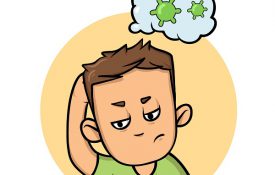-

APS Backgrounder Series: Psychological Science and COVID-19: Social Impact on Adults
Expert commentary from Chris Segrin, whose research focuses on social skills, relationship development and satisfaction. [April 2, 2020]
-

New Research From Clinical Psychological Science
A sample of research on the use of health-related apps and cyberchondria, different judgments during mental health treatments, social anxiety disorder and social interactions, the impact of mental disorders on personality development during adolescence, and reduction of intrusive memories after trauma exposure.
-
How Not to Tank Your Relationship in Quarantine
Humans have evolved with a drive to share life with a partner—just not all day long. Our hunter-gatherer ancestors on the savanna formed pair-bonds, but they parted in the morning to go about their separate tasks. So did our ancestors on the farm. For hundreds of thousands of years, even the most devoted couples have been uttering some version of that basic romantic principle: “I married you for better or for worse, but not for lunch.” So what happens now that spouses are staying home all day, and many unmarried couples suddenly find themselves quarantined together?
-

APS Backgrounder Series: Psychological Science and COVID-19: Social Impact on Children
Expert commentary from Vanessa LoBue on emotional development and the effect of emotion and experience on perception and learning. [April 1, 2020]
-
In Negotiations, Givers Are Smarter Than Takers
APS Member/Author: Adam Grant When the pie seems fixed, it’s common to panic and treat resources as scarce. In crisis, we often do whatever it takes to protect ourselves. That’s especially clear today: In the past few weeks, we’ve seen hoarders collect thousands of bottles of hand sanitizer, and spreaders ignore warnings to maintain physical distance to avoid infecting vulnerable groups. We’ve watched policymakers withhold emergency funds. “It’s give and take, but it’s got to be mostly take,” President Trump said in 2015, summing up his negotiation philosophy. “You got to mostly take.” That was the art of the deal: Be a taker.
-

New Research in Psychological Science
A sample of research on honesty, the scent of a loved one and sleep efficiency, and contextual effects on shape perception.

